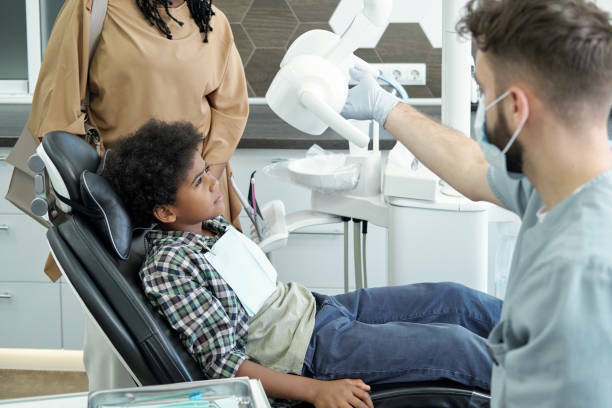Dental care is an essential part of your overall health, but most medical insurance plans do not cover it. The good news is that dental insurance may be less expensive than you think. You can find a program on your own, or your employer may cover all or portion of your dental costs as part of your benefits package. Dental insurance typically includes routine cleanings and simple dental procedures such as crowns and fillings.
The best dental coverage plans come with comprehensive coverage, affordable monthly premiums, and high customer satisfaction. While some dental insurance programs have a waiting period before you can use your benefits, others allow you to start using them immediately.
Here are some of the most affordable dental insurance options available on the market.
Top 5 Dental Insurance Providers of 2022
1) Best for Family Coverage: UnitedHealthOne Dental Insurance
2) Best for Low-Income Families: Delta Dental Insurance
3) Best for Price Reductions: Humana Dental Insurance
4) Best for Nationwide Coverage: Cigna Dental Insurance
5) Best for Reward-Based Plans: Ameritas Dental Insurance
1) UnitedHealthOne Dental Insurance
We chose UnitedHealthOne dental insurance because of its low-cost and easy-to-access family dental plans. UnitedHealthOne offers ten different dental insurance plans and is top-rated by AM Best.
Benefits and Drawbacks
Pros:
- Ten distinct plan options
- Affordable monthly fees
Cons:
- Some services may have a waiting period.
- Poor coverage for orthodontists
Overview:
Golden Rule Insurance Company, which helps fund many of UnitedHealthOne’s insurance products, has an AM Best rating of “A ( or Excellent),” indicating the financial strength and stability of UnitedHealthOne’s insurance products.
Six of United’s most popular dental programs are listed below, along with their benefits:
i) Dental Primary Care:
It includes a $50 deductible per person for essential services when using a network provider and no copay for preventive care. Following the deductible, 50 percent of basic services are covered in the first year, 65 percent in the second year, and 80 percent in the third and subsequent years. The primary healthcare services are not covered. There is an annual limit of $1,000 per person.
ii) Dental Primary Plus:
This policy has a deductible of $50 per person for essential services. There is complete coverage for preventive care services. Following the deductible, there is 50 percent coverage for essential services in the first year, then 65 percent, and finally 80 percent coverage for essential services in the second year. Primary healthcare services are not covered. An annual limit of $1,000 applies.
iii) Dental Essentials:
This plan has a $50 deductible per person for essential services when using a network insurer. Preventive care services initially are covered at 80 percent, then increased to 90 percent, and finally to 100 percent. There is 50 percent coverage for essential health benefits after the deductible. This eventually increases to 65 percent, then 80 percent. Primary services are not covered. Also, your benefits will be limited to $1,000 per year.
iv) Dental Essential Preferred:
There is a $50 deductible per person for essential services and a $100 deductible per person for primary services when using a network provider. Following the deductible, essential services are covered at 50 percent for the first year before increasing to 65 percent, then to 80 percent. Preventive care coverage begins at 80 percent and gradually increases to 90 percent and then 100 percent. Primary care services are reimbursed at a rate of 15 percent after the deductible. There is a $1,000 annual limit per person.
v) Dental Premier Choice:
The policy has a combined deductible of $50 per person for basic and primary services with an in-network provider. There is no copayment for preventive care. Furthermore, the essential services are covered at 50 percent after the deductible. This rises to 65 and 80 percent after the first and second years, respectively. Following the deductible, primary services are covered at 10 percent before increasing to 40 and 50 percent. The plan has a $1,500 annual maximum.
vi) Dental Premier Elite:
This policy has a combined deductible of $50 per person for basic and primary benefits with a non-network provider. There is no copayment for preventive care facilities. Initially, the plan covers essential services at 50 percent after the deductible, but this increases to 65 percent, then 80 percent. There is 15 percent coverage for primary services to start before care increase to 50 percent and then 60 percent. This policy has an annual maximum of $2,000.
2) Delta Dental Insurance
Delta Dental provider is our top pick for low-income families, thanks to its affordable plan options for the whole family. Delta Dental also offers an HMO-based dental plan with no annual maximums or deductibles, making it easier to afford the coverage you need.
Benefits and Drawbacks
Pros:
- HMO plans with no annual maximums or deductibles
- Affordable monthly premiums
Cons:
- Not all procedures will be covered, and it depends on your plan.
- Some plans have a waiting period.
Overview:
Delta Dental is the leading dental insurance company in the United States, with a network of over 155,000 practicing dentists across the country. They earned an “A (Excellent)” rating from AM Best, affirming the company’s financial strength and issuer credit ratings.
Delta Dental provides group and individual plans and plans through the ACA’s public exchanges. Furthermore, Delta Dental has procedures designed to assist low-income families.
The following is a brief description of two Delta Dental insurance plans:
i) DeltaCare USA Policy:
This plan is prepaid annually and has, among other services, no deductibles or annual maximum limit; no copayments or low copayments for most preventive and diagnostic services; coverage for over 300 treatments, including additional cleanings, tooth whitening, and bleaching, and no exclusions for pre-existing medical conditions or missing teeth. As a beneficiary, you must select a primary dental professional from the preferred provider network.
ii) Delta Dental PPO:
Beneficiaries have access to a network of orthodontists (dentists) who accept discounted rates for covered medical services. Furthermore, a percentage of the dentist’s fee is used to pay for covered services. You will pay a portion of the cost, and your insurer will cover the remaining expenses. The amount paid by insurance varies depending on the plan you choose.Also, enrollees may be required to pay a deductible and additional fees for non-covered services and amounts over the annual maximum.
3) Humana Dental Insurance
Humana is an excellent option to save money on your dental insurance.
The health insurer regularly offers a fee reduction when beneficiaries use an in-network provider.
Benefits and Drawbacks
Pros:
- Some plans have no waiting period.
- Discounted fees from in-network providers
Cons:
- Increased premiums on a variety of plans
- High coinsurance rates
Overview
As one of the country’s largest dental insurers, Humana offers dental insurance plans for individuals and small businesses. According to the company website, applicants can save 10 to 60 percent on dental services (depending on their plan) when they get dental service from in-network providers.
The dental plans outlined below are available with the notable benefits:
i) Dental Loyalty Plus:
Enrollees in this plan have the option of visiting any network or out-of-network dentist. Preventive care is fully covered, and the program has no waiting period. The deductible applies only once. The maximum annual limit is $1,000 in the first year, $1,250 in the second year, and $1,500 in the third and subsequent years. The coinsurance rates differ depending on the procedure, and your share decreases after the first and second years of coverage.
ii) Dental Preventative Value Plan:
Full coverage of preventative services after the deductible. Primary services are not covered. Some essential services are covered at 50 percent after the deductible. The deductible is $50 per person and $150 per lifetime. Also, there are no waiting periods or benefit caps.
iii) Bright Plus PPO:
It has a $50 deductible for individuals and a $150 deductible for families. The annual cap is $1,250. Preventive care is completely covered. Most other benefits are not covered, except for simple extractions, fillings, and whitening, which are covered at 60 percent after the deductible.
iv) Dental Saving Plus:
It is a dental savings program, not a regular insurance policy. You can save 25 to 35 percent on preventive care services. There are discounted rates for basic and primary care services with in-network insurers. Moreover, you are not required to pay any deductibles and copays. These plans have no waiting period. There is no maximum limit to the number of services used each year. Orthodontic discounts ranging from 5% to 20% are available. Prescriptions are typically discounted by 37%.
v) Complete Dental:
This plan provides 100 percent coverage for preventive care services. It offers 80 percent coverage after the deductible (with some restrictions) for essential services and 50 percent coverage after the deductible (with some limits) for primary care services. Also, there is no waiting period for preventative services, and the waiting period for primary and essential services is waived with proof of previous dental insurance.
4) Cigna Dental Insurance
Cigna Dental is an excellent choice for patients who regularly travel as it offers a nationwide network at reasonable prices.
Benefits and Drawbacks
Pros:
- An extensive network of dental providers
Cons:
- Not all programs are available in every region.
- Some procedures have higher costs.
Overview
Cigna provides three different dental plan options available through its network of over 93,000 dentists. Cigna’s dental network is spread across the country and allows you to get dental care while away from home. Cigna has received an “A (Excellent)” rating from AM Best, indicating the company has strong financial standing.
Individual insurance plans offered by Cigna Dental are as follows:
i) Cigna Dental 1500:
This plan provides free in-network preventive care services. Therapeutic services are covered up to $1,500 per year after the deductible and coinsurance. This policy has a $50 deductible for individuals and a $150 deductible for families. Orthodontic treatment is covered up to $1,000.
ii) Cigna Dental 1000:
In-network preventive care services are free. Therapeutic services are covered up to $1,000 per year after the deductible and coinsurance. Individuals have a $50 deductible, and families have a $150 deductible. Furthermore, there is no coverage for orthodontia.
iii) Cigna Dental Preventive:
There is no cost for in-network preventive services. Therapeutic services are not covered. There are no deductibles for individuals or families. Also, orthodontics is not covered.
5) Ameritas Dental Insurance
Ameritas is our top recommendation for a dental insurance plan that includes a rewards program. Beneficiaries can increase their annual maximum benefit by visiting the dentist once a year.
Benefits and Drawbacks
Pros:
- Preventive services are fully covered.
- Capability to earn rewards and receive the maximum benefit.
Cons:
- Inadequate orthodontic coverage
Overview
Ameritas is a well-known provider in the dental insurance industry. Ameritas also has a Dental Rewards program through which enrollees can maximize their annual maximum benefit to help pay for expensive treatments in the future by visiting a dental provider and submitting a claim each year.
AM Best has given the Ameritas company an “A (Excellent)” rating, and Standard & Poor’s has given it an “A+ (Strong)” rating.
The following are some of the standard benefits provided by all Ameritas dental plans:
- Preventive services are 100 percent covered with new network insurers
- Enrollees can see any dentist who is not in their network.
- All policies include the “Dental Reward-Based Program.”
- Network providers charge 25 percent to 50 percent less than their regular rates.
- Enrollees can get prescription discounts at over 60,000 network pharmacies.
Compare the Best Dental Insurance Providers
| COMPANY | PLANS | PROVIDERS IN-NETWORK | COVERAGE LIMIT | WAITING PERIOD | STATES AVAILABLE |
| UnitedHealthOne Best for Family Plans | 10 | 100,000 | $1,000 to $3,000 | Varies | 43 |
| Delta Dental Best for Families on a Budget | 5 | 155,000 | $500 to $2,500 | Varies | 50 |
| Humana Best for Discounts | 3+ | 270,000 | $1,000 to Unlimited | Varies | 48 |
| Cigna Best for Nationwide Coverage | 3 | 93,000 | $1,000 to $1,500 | Varies | 49 |
| Ameritas Best for Rewards Programs | 3 | Unknown | $750 to $2,500 | Varies | 50 |
What does a dental insurance plan cover?
Dental insurance covers preventive care, teeth cleanings, fillings, and crowns. Some dental insurance policies also cover a portion of periodontics, orthodontics, and prosthodontics. Furthermore, Teeth whitening and other cosmetic dental procedures are typically not covered by dental insurance plans.
How much does dental insurance cost?
Deductibles can be as low as $50, but there may be a yearly limit of $1,000 or $1,500 on the number of services covered. You may also be required to stay within a network or pay additional charges for using out-of-network providers.
Is it worthwhile to pay for dental insurance?
Dental insurance typically covers only a portion of the preventive care and dental procedures you require. Like health insurance plans, dental insurance plans can help you save a considerable amount of money on unexpected dental procedures such as root canals.
Final Thoughts
Dental care is an essential part of your overall health, so you should buy a quality dental insurance plan. The best dental insurance plans have short waiting periods, low monthly premiums, extensive coverage for routine care, and other complex procedures. UnitedHealthOne is our top recommendation for dental insurance coverage.
UnitedHealthOne provides affordable dental insurance programs for the whole family. Individuals can choose from ten different dental policies, each with varying levels of coverage. Furthermore, UnitedHealthOne received an A (Excellent) rating in financial stability from the A.M. Best, indicating that it will be able to cover the cost of any claims you file. If you are looking to purchase a dental insurance plan, visit our site Insurance Shopping and check your options now!





